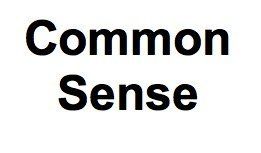Drug Court: Alternative to Jail
Since becoming Deputy State’s Attorney and while campaigning for Kent County State’s Attorney, I have been surprised about how many people are unaware of Kent County’s drug court. It’s called the PAST program and allow me to introduce you to it.
PAST is an acronym for Post-Adjudication Supervision and Treatment. The program is administered by the State’s Attorney’s Office, the Circuit Court and District Court Judges, and Kent County Behavioral Health (KCBH). It acts as an alternative to standard incarceration and probation by providing supervision with increased levels of drug treatment with more frequent and direct oversight. The program was primarily founded several years ago by District Court Judge John Nunn and former State’s Attorney and now Circuit Court Judge Harris Murphy.
The PAST process begins when criminal cases come into the State’s Attorney’s office. All cases that come into the office are reviewed by the attorneys, and the cases that involve individuals with minor criminal records charged with non-violent offenses are flagged as potential PAST cases. Once these cases are identified, it is next determined if the defendant in that case has substance abuse issues and a sincere desire to address those issues by entering the PAST program. At this stage of the process, the defendant’s lawyer becomes involved. These candidates are then evaluated through Kent County Behavioral Heath to determine if they are amenable to treatment. Next, the defendant, through counsel, enters a guilty plea but sentencing is postponed and they are placed into the PAST program.
While in the program, each case is reviewed at least once a month and typically remains in the program for a minimum of one year. In addition to treatment, the court may require that a defendant attend self-help meetings, participate in mental health counseling, perform community service, or any other conditions they deem appropriate. If the individual successfully completes the program, the case is dismissed, and they have no conviction on their record. However, if a defendant does not comply with the terms and conditions of the program, the court can, on its own or at the request of the State, impose sanctions such as increased treatment or some incarceration. If a participant is terminated from the program, the case reverts to the sentencing phase.
As a prosecutor, the PAST program is an effective option to have available. The program provides an avenue to evaluate a case and determine if drug treatment rather than jail is the better solution for rehabilitating the defendant. In turn, it reduces our local jail population, works to help transform a person from a criminal defendant with a drug addiction to a productive sober member of our community, and decreases the likelihood of recidivism.
The program has a success rate of over 80%. In addition, the program reduces the financial burden on the County. The cost to the County to house an individual inmate at the Detention Center is approximately $68 per day and even higher if mental or physical health treatment is needed by a defendant. By placing defendants in the PAST program with treatment paid for by the defendant (either directly or most often through insurance), the financial burden is shifted from local government to the individual.
As a prosecutor, former public defender, and career criminal trial attorney, I can say that programs such as PAST are vital to maintaining the integrity and efficiency of our criminal justice systems by providing a commonsense alternative to incarceration. Kent County is fortunate to have PAST.
Common Sense for the Eastern Shore








